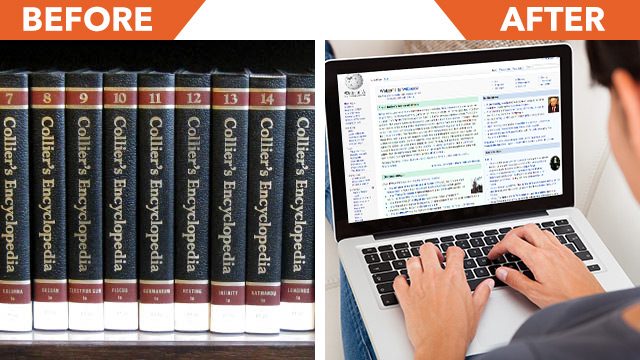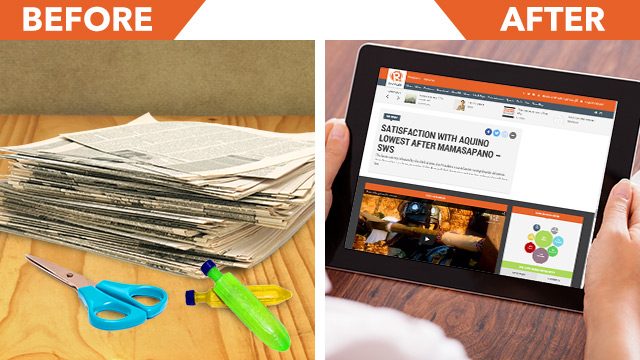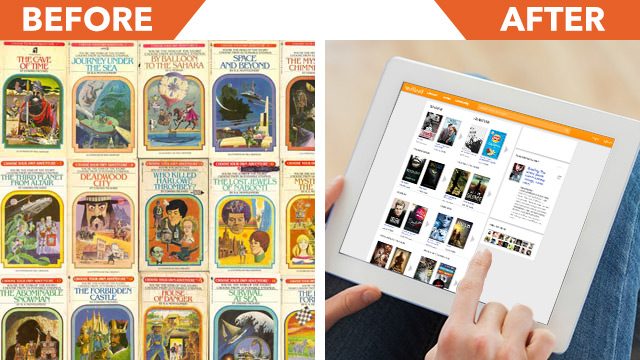SUMMARY
This is AI generated summarization, which may have errors. For context, always refer to the full article.

MANILA, Philippines – High school and college are the source of some of our best memories. The friends we made are some of the closest we have, and the lessons we learned here go beyond academics.
I was born in 1981, and was an average student who loved literature and tended to black out when it came to math. I remember some things from class – the lines to Sonnet 116, how we made blueberry cheesecake in groups, pounding away with typewriter keys covered in masking tape while Mrs. Ponce blasted Ace of Base’s ‘I Saw the Sign’ in the background.
Most of my classmates are mothers. Some are already in that stage looking for schools and buying stockpiles of uniforms. It’s funny to look back on that crazy, happy time when we were students ourselves, looking forward to allowance day, laughing at lunch breaks, a time when it really felt like flunking an exam was the end of the world.
Studying then and now
Studying back then required a lot of effort and legwork. It’s hard not to feel millennials have it so easy. They may know what a library card is, but not how to use it. A typewriting class is bound to confuse them, along with having to reserve overhead projectors and print acetate presentations for class.
In the age of where a Google search makes the difference, I can imagine my younger self sputtering at the unfairness of it all.
Here’s a look at the before and after of academic life.
Research
Research often entailed whole stacks of books. Parents bought their kids Britannica or Collier’s Encyclopedia sets. Students had various editions of dictionaries and thesauruses. Further research meant a trip to the library, along with a lot of note taking and photocopying.
Go online
With one click, young people can start by going online and type in an inquiry in a search engine like Bing or Ask.com.
For general knowledge, they can also access Wikipedia, and for a more detailed illustration or break down on how some things work, there’s WikiHow. There’s even no need for actual dictionaries and thesaurus with Dictionary.com and Thesaurus.com.

Check news and current events
Certain assignments entailed checking out the newspaper and manually doing clippings to include in a report. Depending on how cheap or crafty your parent was, adhesive could mean boiled cornstarch or pink plastic tubes of store-bought paste, or for crammers, a pinch of rice from lunch.
Check online news sites
Most TV and cable news channels also have websites, along with major broadsheets. Apps roll out both local and international stories from Inquirer.net, Interaksyon.com, Philstar.com or Rappler.com. Text can be copied and pasted, updates come from notification alerts, while Facebook timelines churn out what’s hot and new. There’s never any need to pick up a pair of scissors.

Checking for class suspensions
When it starts to rain pretty hard, parents tune in to the AM band and try to catch announcements on class cancellations. Sometimes the cancellations are announced as early as primetime news but on some unlucky days, the kids are at the school gate.
Check online weather
These days, parents can just access weather forecasting sites like Accuweather.com or sign up for and avail of the RaincheckPH mobile app. At 95% accuracy, you’re told if classes or work is suspended in your area. News sites also roll out constantly updated pages. These days, people can also just check their Facebook feeds for announcements on class suspension from their schools or the local government.

Reading and hoarding young adult books
Such a big part of growing up years! My own library card had long columns scrawled with Nancy Drew titles, but others more also got hooked on the Hardy Boys, the Babysitter’s Club, Choose your Own Adventure and even comic books like Archie. Storage and space were perennial problems.
Reading and collecting young adult books on a tablet or going to websites
This generation has Twilight, Harry Potter and The Hunger Games, and some do still like reading from actual books. But now, they also have access to worlds of stories through websites like Wattpad that encourage readers to write and share their own stories.

Consultation with classmates
Missing out on a few days of class due to illness or an emergency would mean phone calls to a classmate or the class president for urgent assignments, or even a house visit to copy missed notes.
Chat through Facebook Messenger
Catching up after a few days of absence is no hassle with just a quick chat with classmates over Facebook.
Free Internet for the win
Today, a lot of Filipinos are able to enjoy free access to social networking sites such as Facebook thanks to the initiative of some telecom providers. And thanks to a recent initiative of Facebook called Internet.org (READ: Rappler ties up with Facebook’s Internet.org, Smart Communications), students of all ages and backgrounds, as well as those that are simply seeking self-improvement through online information can now enjoy free access to a number of key sites with just their mobile phone.
It sure is a different ball game, but with access to the Internet it is also a level playing field for all (READ: Growing Internet use in PH good for education – study). While Gen Xers such as myself can only imagine having the Internet around our school days could have meant for our grades, we can take comfort in the fact that our kids won’t be lugging stacks of books or asking us for photocopy money. – Rappler.com
Add a comment
How does this make you feel?
There are no comments yet. Add your comment to start the conversation.